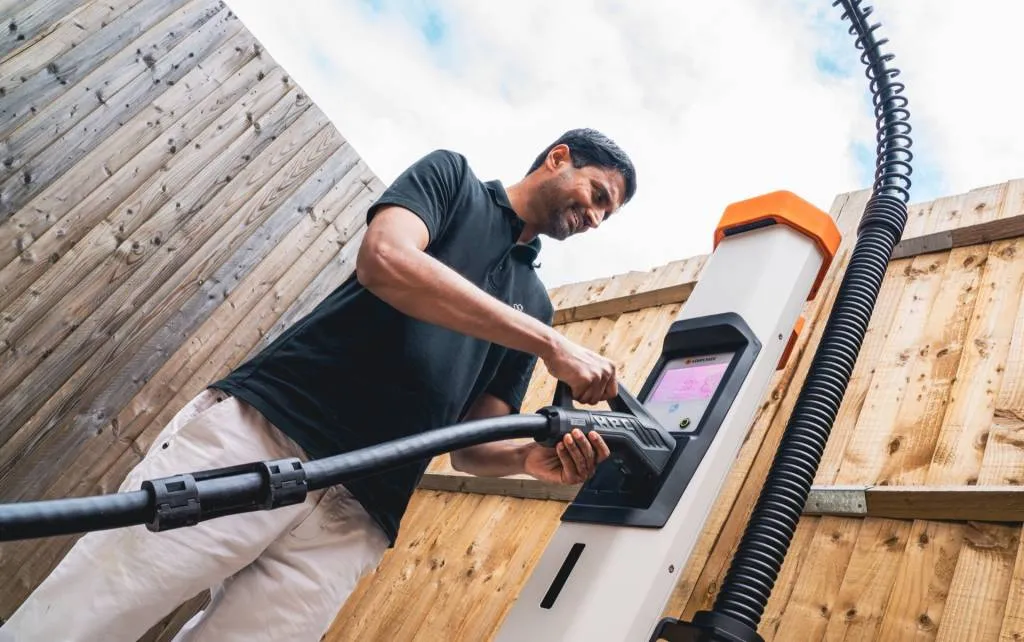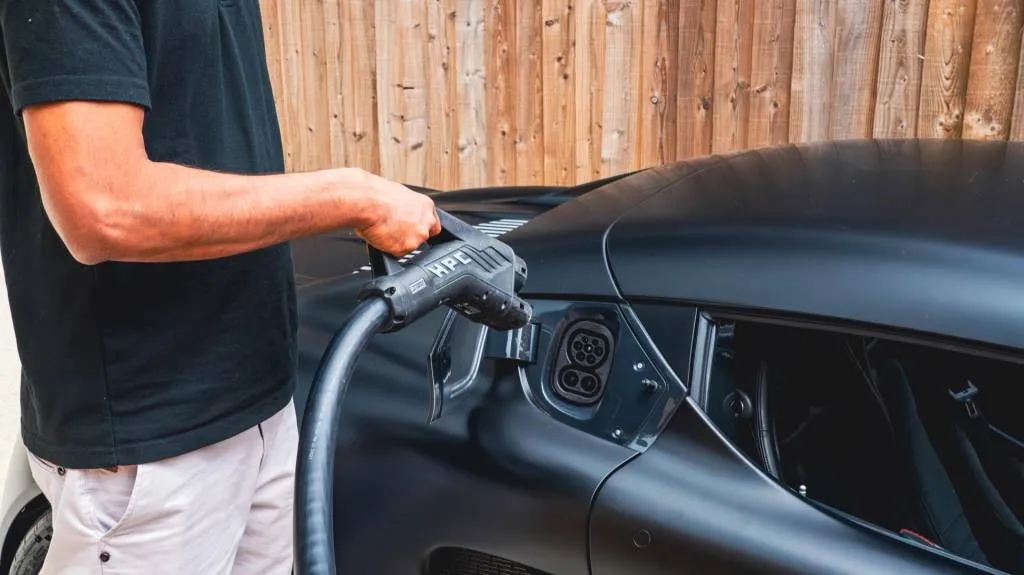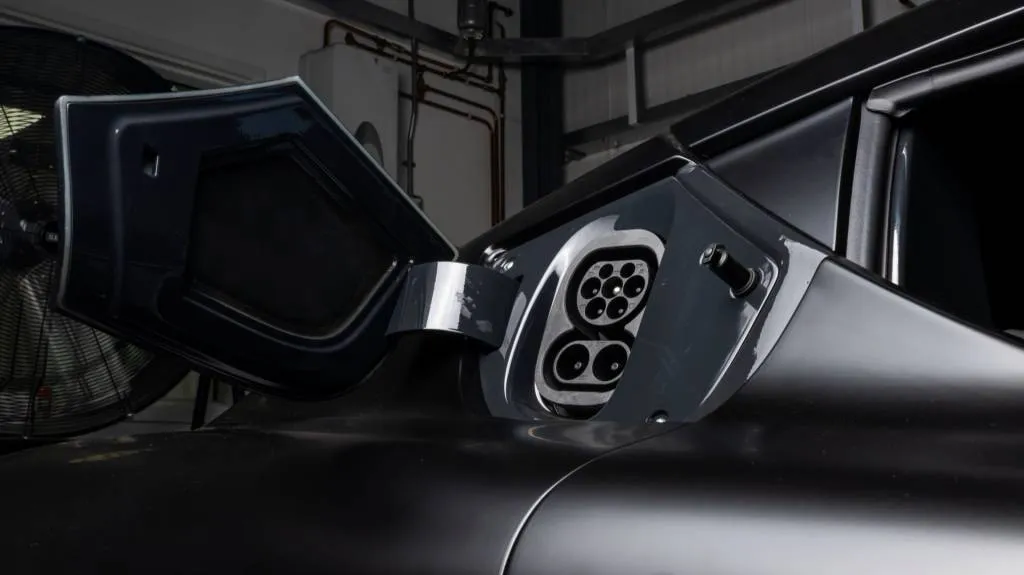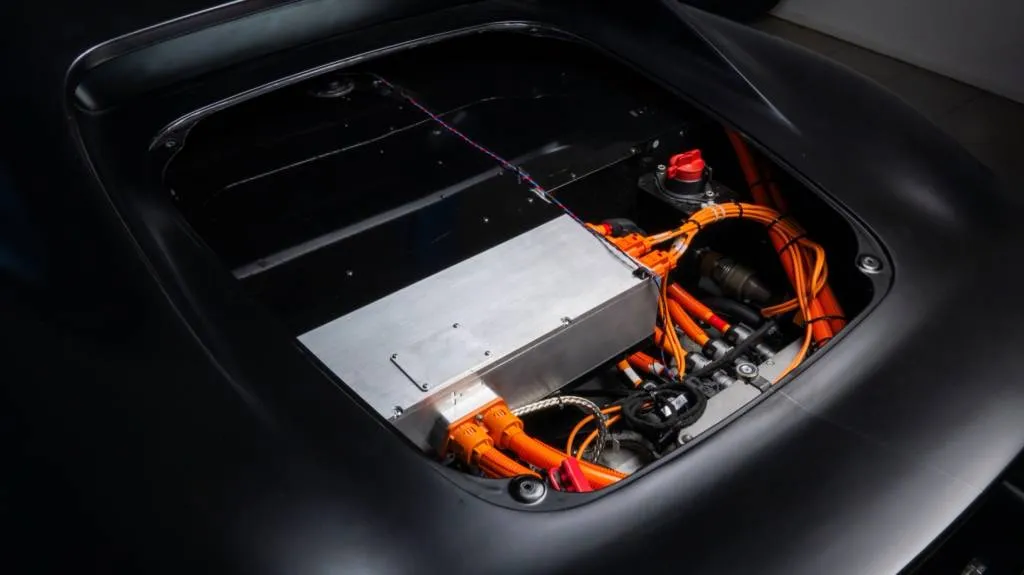If there were reliable high-power EV fast-chargers everywhere, and you could gain about 100 miles of range in four minutes, would you really need such a big battery?
The very fast-charging battery cells from Cambridge, U.K.-based Nyobolt aren’t the solid-state cells that are so eagerly anticipated as a potential EV game-changer, but they lead to some of the same questions. Without as much concern over charge rates, automakers could potentially ease the bloat from ever-larger battery packs—leading to lighter, greener EVs.
Nyobolt electric sports car prototype
Nyobolt says that its 35-kwh battery pack is compact enough to allow a very light 2,750-pound sports car within 100 pounds of the original Lotus-based Tesla Roadster. It has installed the pack into a prototype from Callum, the EV-focused startup created by former Jaguar design boss Ian Callum.
While the electric sports car concept was previewed last year, it’s now a drivable vehicle. The firm says that this prototype “will advance testing of the technology in the real world, enabling OEMs to experience Nyobolt’s ultra-fast charging technology first hand.”

Nyobolt electric sports car prototype

Nyobolt electric sports car prototype

Nyobolt electric sports car prototype
Mathematically, its 10-80% charge in under five minutes means that the Nyobolt pack is charging up near 350 kw for a significant portion of that time. Nyobolt says that the first four minutes of the pack’s charging session—on a CCS connector—is maxed out at a constant current of 500 amps, adding 120 miles of WLTP range (likely nearly 100 EPA-equivalent miles) in that time.
Nyobolt points to its niobium oxide anode materials as a key to how its low-impedance lithium-ion cells circumvent concerns about cell degradation that normally accompany such charge rates. It says that these 24.5-Ah cells have completed the depth-of-discharge fast-charge cycles equating to more than 600,000 miles.

Nyobolt electric sports car prototype
Specifically in this application, Nyobolt’s battery cooling circuit incorporates a chiller and AC compressor/condenser so as to keep the battery temperature no higher than 60 degrees C (140 degrees F).
Nyobolt says that it could be in low-volume production with its cells within a year, allowing 1,000 packs in 2025, and it’s in talks with eight different automakers regarding the use of its tech in high-performance EVs. As for whether that will yield EVs that truly go light, now more than ever it’s a matter of charging.


